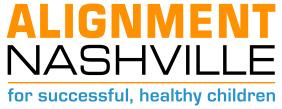MNPS Farm to School: Procurement
REQUEST FOR INFORMATION (RFI): 2017 Produce
Invitation to ParticipateTM from the Alignment Nashville School Nutrition Team
OVERVIEW
Metro Nashville Public Schools (MNPS) aims to provide fresh, high-quality local produce to our students, and to educate students about food and agriculture by way of the Farm to School initiative from the School Nutrition Alignment Team. The team is led by Jackie Contreras, Program Manager at Nashville Farmers' Market, and Spencer Taylor, Director of Nutrition Services for MNPS.
With the aid of the School Nutrition Alignment Team, MNPS is currently accepting submissions from farmers interested in supplying MNPS with assorted produce in the spring 2017. For the purposes of this solicitation, "local" is defined as within roughly 250 miles of Nashville.
Interested farmers are invited to download, fill out and submit the Request for Information (RFI). The following RFI will request general information from farmers about their farm, production, and safety practices as well as product availability and pricing.
MNPS/School Nutrition will use this information to
- Determine realistic expectations and goals for Farm to School in Nashville
- Identify eligible farmer partners for produce procurement
PARTNER EXPECTATIONS
Food Safety
Farmer partners are expected to follow Food Safety criteria on the farm and post-harvest handling, including safe planting, fertilizing, pest-control, harvesting, cooling, packing, delivery, etc.
Farmer partners must provide a written farm safety plan. This written plan will ensure that farmers have taken adequate steps or planning to ensure proper handling of any potentially hazardous or contaminated products. Please feel free to use the attached farm safety checklist at the end of this RFI document as a starting point for your written safety plan. Written safety plans should include adequate steps of how you best plan to implement the various elements in the checklist.
A step-by-step guide to developing a written farm safety plan can be found at Penn State Extension's website: http://extension.psu.edu/food/safety/farm/how-do-i-write-a-food-safety-plan.
Farm partners are encouraged to undergo training on safe farm practices if they have not done so already.
Insurance/Liability
Farmer Partners must be able to provide proof of product liability insurance coverage of up to $1 million.
Invoicing/Payment
Invoices must be submitted with the delivery of product. MNPS will make a payment in full within 30 days of date of invoice.
In order to conduct business with MNPS, farmers must first register as a Metro Government vendor. This registration is available at http://www.nashville.gov/Finance/Procurement/Purchasing/How-To-Do-Business-With-Metro/Registration.aspx and must be completed at least a week in advance of beginning business with MNPS.
Please contact us with any and all questions about this registration process as we will gladly assist you through this process. (Submit questions to: Spencer Taylor, spencer.taylor@mnps.org, or Jackie Contreras, jackie.contreras@nashville.gov)
Invoices must be completely filled out to ensure proper processing through Metro and to ensure on-time payment. Completed invoices can be included with the delivered product to ensure timely processing.
Delivery
Farmer Partners might be asked to deliver to multiple sites in the metro Nashville area. Farmers will be asked to indicate their delivery capacity in the attached product availability and pricing form.
- Product must be delivered in clean, new flats and packaged as indicated in the product description.
- Deliveries will be made directly to schools and can occur between 6 am to 1.30 pm.
- Farmers will be encouraged to deliver on Monday through Wednesday to ensure adequate time for cafeteria staff to process and serve the product for the rest of the week.
MNPS encourages all farmers to meet with cafeteria staff at the school where they are delivering. This will allow for farmers to develop rapport with the school staff and also will allow farmers to coordinate potential delivery times and schedules with the school staff.
Site visit
MNPS and the F2S Committee may conduct a site visit to meet farm staff, observe farm practices, and assure that good food safety practices are being followed.
Traceability
Each case delivered must be labeled with farm name, product, date harvested, and date packed.
SUBMISSION
Application submissions are due TBD. MNPS will respond with solicitations by TBD.
Please note that more than one partner may be selected based on the volume needed.
A COMPLETED APPLICATION WILL INCLUDE:
- Written food safety plan, GAP certification, or equivalent documentation (see Food Safety for more info, above)
- Proof of liability insurance coverage of up to $1 million (see Insurance/Liability for more info, above)
- Proof of registration as a Metro vendor (see Invoicing/Payment for more info, above)
- Notarized document from Agriculture Extension Office certifying that you are a farmer
- Information of delivery vehicle with proof of insurance (see Delivery for more info, above)
- Completed safety checklist/risk assessment form (included in packet below)
- Completed produce availability and pricing form (included in packet below)
- Completed partner response form (included in packet below)
Submit completed application packet via email to:
Spencer Taylor, Director of Nutrition Services at MNPS; Spencer.Taylor@mnps.org
Robert Robinson, Associate Director at Alignment Nashville; robert@alignmentnashville.org
 TACTIC OUTCOMES
TACTIC OUTCOMES
OUTPUTS
- School Nutrition A-Team and CFA release a Request For Information (RFI) to collect information from regional farmers on capacity for production, processing, and delivery of produce during Fall 2015
- School Nutrition engages at least 4 farmers to sell and deliver a quantity TBD of local produce to 5 predetermined pilot elementary schools during fall 2015: Fall-Hamilton, Glengarry, Glenview, Park Avenue, and Rosebank.
SHORT TERM OUTCOME
- The 5 pilot elementary schools procure and use local (250-mile radius) produce during the fall 2015 growing/production season
MID TERM OUTCOME
- At least 5 schools procure and use local produce of any kind during 2015-2016 school year
LONG TERM OUTCOME
- Improved children's health & wellness [measured by Coordinated School Health BMI data]

